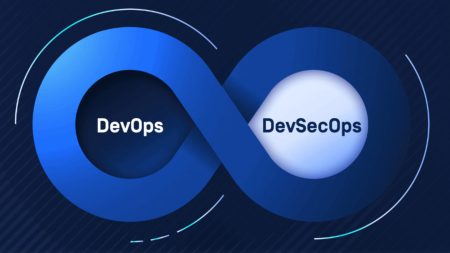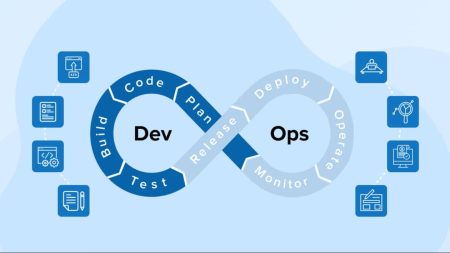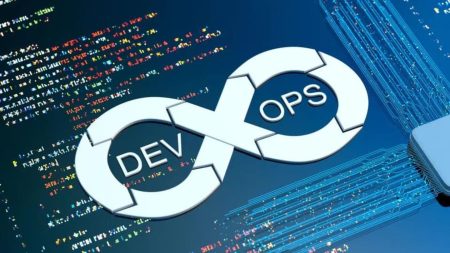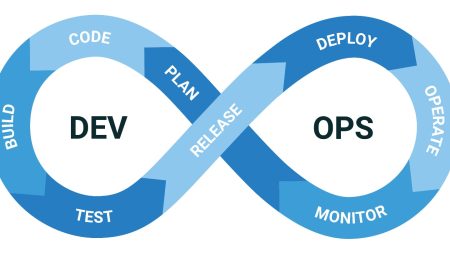The Big Picture of DevOps Security
DevOps security often feels like the elephant in the room. Everyone knows it’s essential, but squeezing it into the agile and dynamic development cycle can feel like trying to catch lightning in a bottle. Why is that? It’s not like developers wake up in the morning and decide to cut corners on security. But here’s the kicker: speed is king in DevOps. It’s the engine that drives innovation. Unfortunately, it’s also the reason security often gets left in the dust. Let’s face it – development and security don’t always get along. It’s like trying to combine oil and water.
However, ignoring security in DevOps is like building a house of cards on a windy day. Without the right precautions, it will eventually topple, and when it does, the results can be catastrophic.So, how do we keep the speed without sacrificing security? Welcome to DevOps security, or as some like to call it, DevSecOps – the practice of integrating security into every stage of the DevOps lifecycle. If done right, it’s a match made in heaven, but let’s dig into why this approach is more important now than ever before.
What Is DevOps Security?
Let’s not beat around the bush: What is DevOps security? At its core, it’s the philosophy that security should not be an afterthought but a part of the entire development process. Gone are the days when security teams could wait until software was nearly ready to ship before diving in. That old approach is about as outdated as floppy disks.
DevSecOps security advocates for what some call “shifting left.” That means embedding security practices early and often, not just at the end. Security doesn’t need to be the speed bump on the highway to deployment. If done properly, it can become part of the smooth, fast-flowing traffic. It’s about making security everyone’s responsibility, from developers to operations.
The Benefits of DevSecOps
When security and DevOps shake hands, the benefits are clear. We’re not talking about a minor improvement here or there. No, we’re talking about a quantum leap in security and efficiency. It’s a game changer.
One of the key benefits of DevSecOps is that it reduces vulnerabilities by catching them early. According to a study by the Ponemon Institute, fixing a security bug during production can cost up to 30 times more than fixing it during development. Think of it this way: you wouldn’t wait until a boat was sinking to patch the holes, would you? The same logic applies here.
Integrating security into the DevOps cycle also creates more robust applications. Security becomes part of the DNA of the software. Applications built with security in mind from the start are inherently stronger and less prone to being compromised.
Lastly, DevSecOps minimizes downtime. When security is baked into the development cycle, there are fewer emergencies where developers have to drop everything to deal with breaches. In other words, DevOps security helps keep the ship sailing smoothly.
Why Security in DevOps Is Non-Negotiable?
What about application security in DevOps? Let’s be real: the world is not a safe place for your applications. Cyber threats are everywhere, and attackers are becoming more sophisticated by the day. According to Cybersecurity Ventures, cybercrime will cost the world $10.5 trillion annually by 2025. That’s a trillion, with a “T”. Yikes. In this environment, security in DevOps is not just a nice-to-have; it’s a must-have. Hackers don’t take breaks, so neither should your security practices. By ignoring security, you’re essentially handing over the keys to the kingdom. That’s not a risk any business can afford.
Moreover, with the increasing use of cloud-native applications and microservices, the attack surface is broader than ever before. Each new feature, each new release, adds potential points of vulnerability. In this high-stakes game, DevOps cyber security plays the role of the sentinel, standing guard at every turn. By integrating cyber security penetration testing into every stage of the software development process, DevSecOps provides enhanced security and offers improved efficiency, faster delivery, and a more collaborative team environment.
The Key Components of Secure DevOps
Let’s talk turkey. What does secure DevOps look like in practice? It’s more than just a buzzword. It’s a systematic approach to security that touches every part of the development lifecycle. Here are the key components:
- Automation: Automating security tasks is like setting an alarm system for your code. It ensures that nothing slips through the cracks. Whether it’s automated code reviews, vulnerability scanning, or deployment testing, automation ensures that security is maintained consistently without bogging down your team.
- Continuous Monitoring: DevOps never stops, and neither should your security. Continuous monitoring means that your systems are always being checked for anomalies or suspicious activity. It’s like having a night guard who never sleeps.
- Collaboration: Here’s the dirty little secret – DevOps and security folks aren’t always on the same page. But in a security DevOps environment, collaboration is key. Developers, security experts, and operations teams need to work together, not in silos. Open communication fosters better understanding and more effective solutions.
- Threat Modeling: This is where the magic happens. Before writing a single line of code, threat modeling helps identify potential risks and vulnerabilities. It’s a bit like planning for a road trip: you wouldn’t set off without checking for traffic or bad weather ahead, right? Similarly, developers need to know what threats are on the horizon.
- Compliance and Governance: In today’s regulatory landscape, compliance is non-negotiable. Whether you’re dealing with GDPR, HIPAA or other regulations, integrating compliance checks into your DevOps pipeline is critical. It’s not just about ticking boxes; it’s about ensuring your software meets the standards of the law.
Challenges in DevOps Cyber Security
Of course, it’s not all sunshine and roses. Cyber security in DevOps comes with its own set of challenges. One of the biggest hurdles is changing the culture within an organization. For many teams, security has long been a separate entity. Bridging the gap between development and security requires more than just new tools – it requires a mindset shift.
Another challenge is tool overload. With the rise of DevSecOps, the number of security tools available is staggering. Finding the right balance between effective security and operational efficiency can feel like walking a tightrope. Choose the wrong tools, and you risk slowing down the entire development process. Choose too many, and it can create unnecessary complexity.
How to Implement Development Security Operations Effectively?
So how do you integrate development security operations without making your development team want to throw their keyboards out the window? The key is to start small and build up.
- Start with Automation: One of the easiest ways to get your team on board with DevSecOps is by automating security tasks. Start with simple automation, like running vulnerability scans in your CI/CD pipeline. This helps developers spot issues early without much extra work on their part.
- Train Your Team: If your developers don’t understand the security risks they face, they won’t be able to address them. DevOps security training should be a priority. But don’t make it boring – nobody wants to sit through hours of PowerPoint slides. Make it engaging and practical. Show developers how their code could be exploited, and then teach them how to fix it.
- Integrate Gradually: Rome wasn’t built in a day, and your secure DevOps process won’t be either. Start by integrating security at key points in your development cycle and slowly expand from there. The goal is to build a culture where security is second nature, not a last-minute headache.
- Leverage Threat Intelligence: Proactively gather threat intelligence and apply it to your security efforts. This can help your team stay ahead of emerging risks. A report by Accenture found that 68% of companies believe threat intelligence is essential to strong cybersecurity, yet only 40% use it. Don’t be in the latter group.
The Future of DevOps Security
Where is DevOps and security headed? Well, the future looks bright. More organizations are beginning to realize that speed without security is a recipe for disaster. We’re seeing more integration of AI and machine learning into security processes, which is like giving your security team superpowers. These technologies can quickly identify patterns and predict threats, reducing the time needed to respond to potential attacks. Additionally, as organizations continue to move to the cloud, DevOps cyber security will become even more critical.
Cloud environments present unique challenges, but they also offer opportunities for new and innovative security solutions. As DevOps evolves, so too will its approach to security. The companies that succeed will be those that embrace security as an integral part of their DevOps strategy, not as a pesky afterthought. They’ll realize that fast development and tight security aren’t enemies but rather partners in delivering high-quality, secure applications.
Winding Up
To put it bluntly, DevOps security isn’t just a trend; it’s the future of secure software development. The landscape of cyber threats is growing every day, and ignoring security is akin to playing with fire. The sooner organizations understand that security in DevOps is a strategic advantage, the better equipped they’ll be to face the digital frontier. Sure, integrating security into DevOps is no walk in the park, but with the right tools, training, and mindset, it’s entirely achievable.
And let’s be honest – wouldn’t you rather patch the holes in your boat before setting sail than scramble for a lifeboat once the water’s flooding in?In this high-stakes race to deliver faster and more reliable software, secure DevOps isn’t just the finish line; it’s the whole track. So gear up, because the journey toward stronger, safer applications has only just begun.
Read also interesting article about AI Ops.











